- Home
- Heather Graham
Devil's Mistress Page 19
Devil's Mistress Read online
Page 19
“You are in love with him,” Robert said gravely.
She lifted her hands, not willing to dispute him, and not able to lie. She remembered that the greatest sin among Puritans was to tell a lie. Truth was precious to them.
“He is married,” she said flatly, and when he replied with a very soft “Oh,” and held her to his shoulder, she knew that he understood.
A leaf, deep green and summer verdant, fell from the tree and drifted down beside her. She felt the stir of the breeze, a ray of the sun streaking through the blanket cast against the sun by the tall branches of the tree.
The sky, the earth, the wind, and all beautiful things were hers now—because of Sloan. And yet leaving him was the only thing that she could do.
“Will he come for you?” Robert asked.
“I don’t know.”
“He will.”
“Oh, I pray that he does not. For I do love him with all my heart and I ran from him today because I am afraid that I haven’t the power to stand against him.”
“God will give thee that power, Brianna.”
He was sure, so positive in the simplicity of his faith. Robert stood and reached down a hand to her. “Come, cousin. I will take you home. Our love will be always with thee, strong against temptation.”
She accepted his hand and rose—even though she felt she knew much more about temptation than Robert. But now she must trust him and the love of her family, and cling to them for strength to hold fast to her resolutions.
They rode in silence for some time. “It is unlikely,” Robert mused at last, “that Lord Treveryan could find you tonight. But he will come. I’m convinced of it. When he does, you must meet him, and convince him that he imperils your immortal soul.”
Brianna closed her eyes and wondered if she’d ever forget what it felt like to live with this horrible, aching pain? To breathe, and breathe in loneliness and despair.
Yes—she would be going to a new land. She would no longer be an outlaw, a condemned criminal, for none would have heard of her crime. She had to keep believing in the new land.
Chapter Fourteen
The Powell home was a small two-storied cottage that was cared for with great love. Begonias grew in profusion about the entrance; bright clean curtains hung at the windows. When Robert pushed open the door, wonderful cooking aromas filled their senses. Hook rugs adorned the simple floors, and precious candles burned brightly from a well-polished dining table.
“Robert?”
There was surprise in the dulcet tones of the plump woman’s voice as she came toward them. Brianna blinked, for Margaret Powell, her mother’s cousin, did not appear as if she had changed a whit in all the years gone past.
But evidently Brianna had changed somewhat herself. Margaret stopped walking, absently pushing back a still-black wing of hair, and stared at her with a curiosity that was not rude, but rather a bit stupefied—as if she should be able to place the girl on her son’s arm, but could not. Then, quite suddenly, she let out a little gasp and rushed forward with a smile as radiant as the sun.
“Brianna! Oh, Brianna! All grown up! Oh, child, child, come in, come in!”
At last she was being crushed by safe and loving arms. Explanations could come later; for now, there was only the bliss of being cherished. Tears had filled her eyes by the time Robert’s father came to hold her too. Tall, slim, and weathered, he said her name gently, and she knew that they would give her all the support she could find in this world.
By nightfall the Powells had been given a sketchy version of all that had happened. They did not judge her, nor did she even know what they really thought. Ethan said solemnly that they would stand by her—and that surely God would too.
To her amazement she slept soundly that night. Sleep was a respite from anguish. A blessed respite, for the morning brought all that she had feared. Margaret woke her with calm warning. “Brianna, he is here.”
“Sloan?” she gasped out shakily.
Already? It was too soon, she was barely awake. She wasn’t strong at all.
“Aye, Lord Treveryan.”
She closed her eyes again. Had he thundered into the house? Demanded that she be returned? If he displayed the arrogance of his class, she might well find it easier to despise him; to find some shame that she desired him enough to forget that he was wedded to another in the eyes of man and—and God.
“Did he … did he …”
“He came as courteous as a man might, my dear. I thought to loathe for the dishonor he has brought you to, but I cannot, for even if he stands like an oak and is as sound in mind and body as any ship, his eyes harbor such a tumult that he must not be despised. Deal gently with him—but firmly. You must not go with him.”
Brianna nodded miserably. She rose quickly and dressed, and with shaking fingers knotted her hair firmly at her nape. Her palms were damp, her throat was dry.
At last she opened the door and came to the parlor.
Sloan was there, by the fire, one hand upon the hearth, his head inclined toward it. Seeing him, she felt that she wanted to die, quite truly, rather than watch him walk out the door. When he turned to her, his features were strained, but his eyes were vividly, brilliantly green against the redness that marred them. She thought that he had not slept at all, and she desperately wanted to run to him, to hold him tight, and ease the deep-set furrows from his brow.
But Ethan and Robert stepped beside her to walk with her to the parlor.
“I would have you come back with me,” Sloan said, and his voice was harsh and hoarse, and ripped at her soul.
She opened her mouth, but no sound would come. She hated herself for being such a coward, and finally found the words to speak.
“These people are the family I have so craved to reach, Sloan. My place is here, with them. I beg you, leave me where I am loved—and respected.” Her emphasis on the last word was soft, and yet it was clear, so that he would truly understand.
Then he appeared angry, and in her heart she was a little glad; she did not want to forget his anger and his touch of arrogance, for they were a part of him that she loved; his determination that he could always best the world.
“Brianna—”
Robert set an arm about her and stepped forward slightly. “My Lord Treveryan, I will speak frankly here. You cannot give Brianna that which I can. Think my lord! What would her life be? Access to port upon port? And what of your loyalty, sir, to the prince you serve? There is hardship ahead, war and battle. Would you see her brought to danger or left behind to suffer scorn? My lord, we are her kindred, and we must protect her life and soul. We are grateful to you for saving her life, but, my lord, we are her male protectors; we must guide her life. Sir, I must tell you that Brianna and I are betrothed. I will marry her, my lord, and give her that station which you cannot.”
Sloan’s incredulous exclamation covered Brianna’s own gasp of shock.
“But you cannot!” he exclaimed in a fury. “You are cousins.”
“Nay, sir, our mothers were cousins. And I might remind you that the Prince and Princess of Orange are first cousins.”
For one terrible minute Brianna feared that Sloan meant to draw his sword and slay Robert on the spot; she had never seen such a fire in his eyes. He seemed indomitable as he stood there towering over them all, fierce and bronzed—and beautiful still to her eyes.
“Sloan!” she cried out, stepping forward. “Please, I beg of you! If you care for me—if ever you have loved me—leave me here, in peace.”
He turned away from her, striding back to the mantel—he could not look at her. Her words rang in his ears, an echo of reproach. “If you ever loved me …”
If? He didn’t think that he could walk away, that he was capable of doing such a thing. He wanted to rip to shreds this man who was claiming Brianna. But Robert Powell was aware that Sloan could kill him with little more than a blow—and held quietly to his stance anyway.
And Brianna …
There had been
such pleading in her voice. Dear God, he did love her. So much that he couldn’t wrench her away, no matter what his own feelings were. He’d go through hell for her; he would face a thousand Matthews. But he couldn’t fight her. Not now.
He could give her almost anything in the world, but not the most important thing. He could love her with all his heart—but he could not make her his wife.
Neither could he bear being here longer thinking that she would wed another man. And he could not despise Powell, for even though he appeared as gaunt as birch branch, he was not without courage.
Sloan longed to fight for the woman who was his. But he couldn’t. Brianna had begged him to leave her, and because he did love her, he had no choice.
But he made one last protest, his voice so harsh that it was a crude rasp.
“Have you forgotten? Brianna MacCardle is an outlaw here—until William of Orange marches into England. Only then will I be able to clear our names.”
“My Lord Treveryan,” Robert Powell said distinctly. “I am aware of that. I intend to take her far from England. The Lady of Bristol sails in three days for New England. We will be on her.”
Sloan nodded. His heart seemed to be ripped from his chest, and sink bleeding to his feet. He stared at her then, determined to memorize her for a lifetime. The beautiful blue of her eyes, radiant now, dazzled with liquid tears. He must remember her face, her form, her fiery pride and rages, the melody of her laughter, and the parted curve of her lips when she anticipated his kiss.
Sloan took a step forward, dredging up everything he knew of gallantry.
He knelt at her feet, took her hand, and lowered his head over it. Slim and delicate—he would never forget the touch of her fingers.
“Peace and happiness, to you, then, my lady. Godspeed to you both.”
He kissed her hand and rose, bowing sharply to Robert and Ethan Powell.
Then he quit the small cottage, allowing the door to slam shut behind him. Holding back a man’s tears, he jumped upon his horse and sent his heels flying against the beast’s flanks. He rode until he came to a cove in the forest, where he dismounted, finally realizing that the animal did not deserve to be the brunt of his turmoil.
Sloan sank to the grass. For once in his life he had wanted some one thing … someone … more than anything else in the world. And he could not have her, simply because he did love her so much. He ached as though mortally wounded. He did not know what to do, where to turn, and so he thundered his fists against a tree, and when his hands were bloody, he fell to the forest floor.
Morning passed; the sun rose high above him. And suddenly he screamed out—screamed out in rage, in loss, in frustration—and in love.
Finally his voice went hoarse. He stood and patted the neck of the horse he had run so ragged. He found a stream and let the animal drink, next he splashed his face again and again with the cold water and cooled his battered hands.
Then he mounted the horse again and started back toward port. He wanted to reach the sea; she was his mistress, she would heal him, she would give back his reason and passion for life.
And he would reach Holland. He would be there for William and Mary; he would fight with fury and vengeance, cast himself into the tumult of battle and fray. He would then go back to Loghaire. Perhaps he could not love his wife, but he would try to be her friend. God, how he pitied her now, for she could never know just what beauty God could give—and take away.
His eyes carefully following the movements of his fingers, Robert Powell knelt beside the chair he had almost completed. His file moved quickly and fluidly in his hands; he touched the hard wood with an almost loving reverence.
Long ago—when he had been a very small child—he had learned that he did not have the strength or energy of other men. While his father labored with heavy hauling and planting, and his brother split logs, and his sister helped with the birthing of the farm animals, he had been sent to help in the kitchen. Even there he had been given the lighter tasks, peeling apples, plucking feathers, washing the family plates.
He had been teased mercilessly by the boys his own age, and because they declared him less than a man, he had determined to prove them wrong. He had struck off for the farmyard with a vengeance, hacking at a full cord of wood with his father’s weighted axe. Barely had he begun the task before it seemed that the blow of an anvil struck against his chest. He heaved with bitter desperation for breath, but could get no air. Ultimately he fainted.
He was very, very sick when he opened his eyes again. His mattress had been dragged before the fire, over which his mother had a kettle boiling, the steam redolent of herbs and precious mint. He could just barely breathe, and knew from the tears in his mother’s eyes that he had come very close to dying.
Getting well had taken a long time; hours and hours in which to brood, in which to wonder why God had cast such a fate—actually to berate God in his mind, even though he knew and feared the blasphemy of such a thing.
He had also had time to stare out at the beautiful summer mornings, to see the birds flit about the trees, and to watch the way the rising sun played with and glittered over the dew in the fields. He realized that he loved life and that he was grateful to be living. That there was so much to see, so much to be experienced, even if a man were to have his limitations.
Somewhere during that time he came to terms with his God. Having come to peace with himself, he knew he would never again need to prove anything to others. As the years passed, he became an avid scholar and writer.
And he learned to carve. Furniture and toys, utensils, and frames, beautiful things, sturdy things. Wood became creation in his hands, and his usefulness to others was further established.
But now as he labored over his task with infinite patience, he did so with a heavy heart. Brianna was still in the room where she had run with a little cry when the noble seaman had left them.
She would be left alone today, he knew. His parents were giving her this time, for her life had been hard of late. They were not without pity, but pity was not an emotion fostered among his faith. Treveryan was imperiling her immortal soul, so he had to be severed from her life, and it was quite that simple. Hard work would cure her of her ills; perhaps her heart was shattered, but it was a young heart, and mendable. And they did not live in a world that could be ruled by the heart, anyway. In time she would meet the proper man, she would stand beside him before God, bear his children, and raise them in the Lord’s way. Happiness was not a promise, it was a blessing that sometimes came like spring rain—and oft departed as quickly.
Tomorrow Brianna would be set to work. Hard toil and labor that would send her to bed exhausted and too bone-weary to bear any anguish in the night for what could not be.
Robert felt her pain and longed to soothe it. He did not believe that she would forget her sea captain—ever. And he knew that now she would be thinking that she did not care about right or wrong, or even her immortal soul. She would be thinking herself the greatest of all fools for having cast away everything in life that mattered to her.
He smiled to himself suddenly, thinking that she was like a summer’s breeze to his life. She had been a beautiful child and she was lovelier as a woman. Just to see her was one of those special gifts that made life worth living. He wished to hold her in his arms and give her what tenderness he could; and he thought then that he loved her himself, and was heartfully sorry for Treveryan—a man who deserved her love, but by God’s will could not have it.
“Robert?”
He started at the soft hesitancy of her tone, but also seemed warmed by its very utterance. He turned to see her, slim and lithe, a silhouette in the doorway, framed by the luxurious colors of the waning sun. She stepped into the barn, and her features became clear.
There was no sign of tears about her face, but she was pale and drawn. Her eyes told of a woman decades older than her age. She was very calm and very still—just so very weary- and empty-looking.
He tried to smile f
or her. “Come in. Do you like my chair?”
“It is beautiful, Robert,” she said, and she came forward to touch the wood, smoothing it.
She looked at him and there were still no tears in her eyes. Something had settled over her that afternoon, as surely as a cloud of gray—of mystery and steel.
“I wanted to thank you, Robert. Without you I would not have managed to be here still.”
“I did nothing,” he said, simply, and rose.
“But you did,” she murmured. “You stood between us … you told him that we were betrothed.” She stared at him incredulously. “I know that you never lie, Robert!”
“Ah, but was it a lie? For, this afternoon we shall say that we are betrothed!” He walked by her, glancing back over his shoulder. “Brianna, we have little time to prepare and get back to port to sail. That we must get you from England quickly is one of the greatest truths I have ever spoken.”
He felt her tremble even at his distance and he knew that she was not all right. “Imagine, Brianna!” he told her then. “A new land, a different land, far, far across the sea. Something emerging, growing—and we shall be a part of it!”
Two days later they set sail. He stood by her at the ship’s rail, and they stared at England. “Glasgow, and now Upsinwich,” she murmured. “I feel that I am always sailing away.”
“New beginnings,” Robert murmured, squeezing her fingers. “Don’t look back.”
She turned away from the rail. “No,” she promised softly. “I will never look back.”
But every sane person aboard did think to look back as the days at sea passed while terrible storms whipped and raged about them. Traveling was total misery. Brianna had no cabin in which to sleep. She was down in the hold with fifty other women, with only canvas sheeting separating them from the men. There were rats and lice, and always a stench of sickness. Brianna had learned something about sailing, so for the first week, no matter how the ship pitched and swayed and threatened to break apart, she was all right.

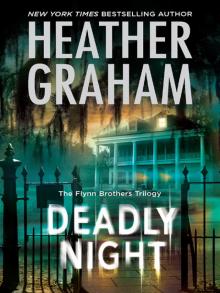 Deadly Night
Deadly Night The Uninvited
The Uninvited Dust to Dust
Dust to Dust Heart of Evil
Heart of Evil A Perfect Obsession
A Perfect Obsession The Keepers
The Keepers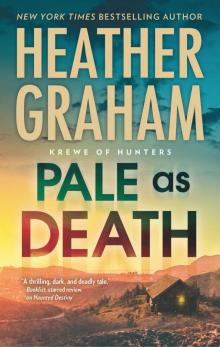 Pale as Death
Pale as Death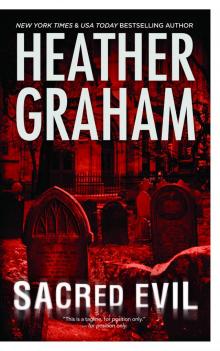 Phantom Evil
Phantom Evil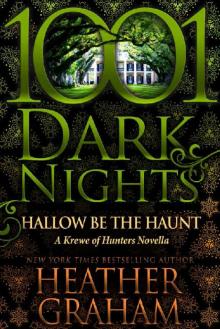 Hallow Be the Haunt
Hallow Be the Haunt Night of the Wolves
Night of the Wolves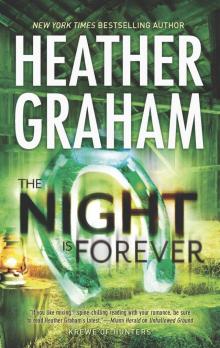 The Night Is Forever
The Night Is Forever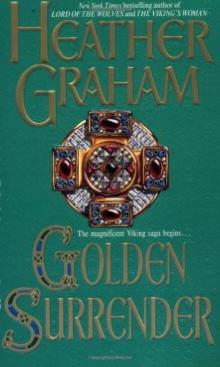 Golden Surrender
Golden Surrender Kiss of Darkness
Kiss of Darkness Beneath a Blood Red Moon
Beneath a Blood Red Moon A Dangerous Game
A Dangerous Game Ghost Shadow
Ghost Shadow Long, Lean, and Lethal
Long, Lean, and Lethal Fade to Black
Fade to Black The Rising
The Rising And One Wore Gray
And One Wore Gray Rebel
Rebel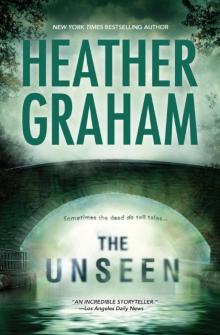 The Unseen
The Unseen The Night Is Watching
The Night Is Watching The Evil Inside
The Evil Inside The Unspoken
The Unspoken The Night Is Alive
The Night Is Alive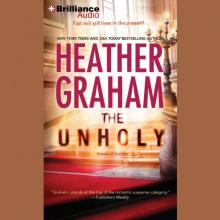 The Unholy
The Unholy Nightwalker
Nightwalker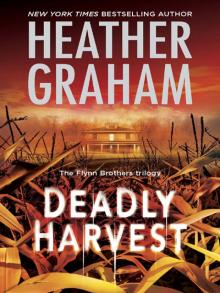 Deadly Harvest
Deadly Harvest An Angel for Christmas
An Angel for Christmas A Pirate's Pleasure
A Pirate's Pleasure American Drifter
American Drifter Realm of Shadows
Realm of Shadows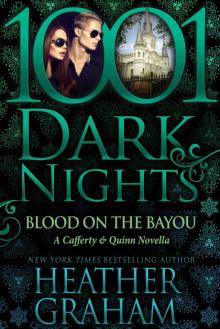 Blood on the Bayou
Blood on the Bayou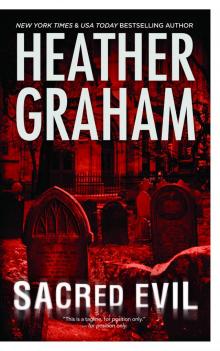 Sacred Evil
Sacred Evil Dying to Have Her
Dying to Have Her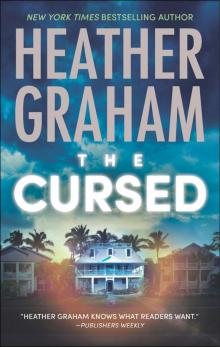 The Cursed
The Cursed Captive
Captive Hurricane Bay
Hurricane Bay Drop Dead Gorgeous
Drop Dead Gorgeous Ghost Memories
Ghost Memories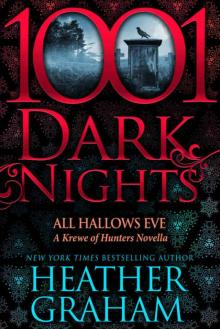 All Hallows Eve
All Hallows Eve Dying Breath
Dying Breath Deadly Fate
Deadly Fate The Dead Room
The Dead Room Lord of the Wolves
Lord of the Wolves Ghost Night
Ghost Night Ghost Walk
Ghost Walk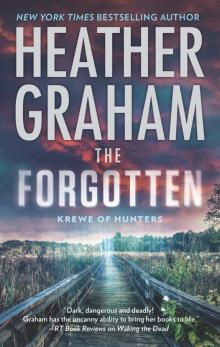 The Forgotten
The Forgotten Unhallowed Ground
Unhallowed Ground One Wore Blue
One Wore Blue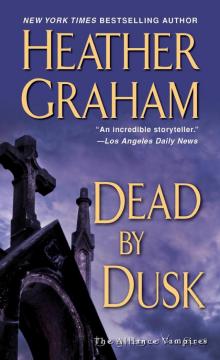 Dead By Dusk
Dead By Dusk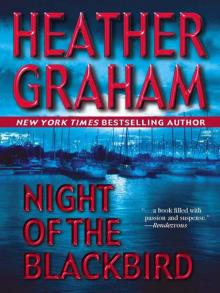 Night of the Blackbird
Night of the Blackbird The Dead Play On
The Dead Play On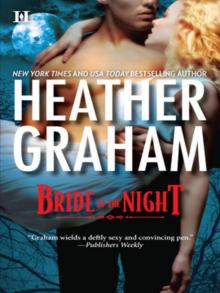 Bride of the Night
Bride of the Night Wicked Deeds
Wicked Deeds The Forbidden
The Forbidden Triumph
Triumph Out of the Darkness
Out of the Darkness Love Not a Rebel
Love Not a Rebel The Last Noel
The Last Noel Tall, Dark, and Deadly
Tall, Dark, and Deadly The Death Dealer
The Death Dealer Dead on the Dance Floor
Dead on the Dance Floor Law and Disorder
Law and Disorder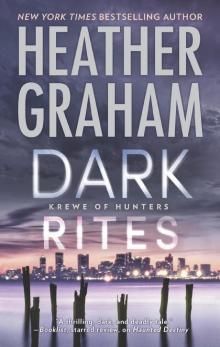 Dark Rites
Dark Rites New Year's Eve
New Year's Eve Hostage At Crystal Manor
Hostage At Crystal Manor And One Rode West
And One Rode West Home in Time for Christmas
Home in Time for Christmas Killing Kelly
Killing Kelly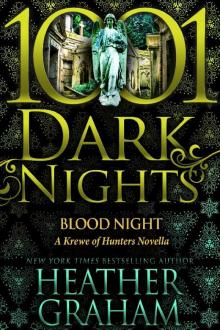 Blood Night
Blood Night Tangled Threat (Mills & Boon Heroes)
Tangled Threat (Mills & Boon Heroes)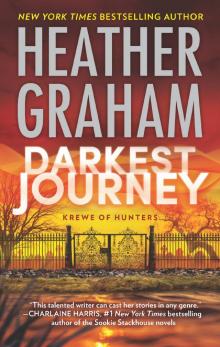 Darkest Journey
Darkest Journey Glory
Glory Deadly Touch
Deadly Touch An Unexpected Guest
An Unexpected Guest Night of the Vampires
Night of the Vampires Seize the Wind
Seize the Wind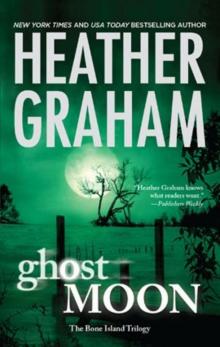 Ghost Moon
Ghost Moon The Vision
The Vision Dreaming Death
Dreaming Death Conspiracy to Murder
Conspiracy to Murder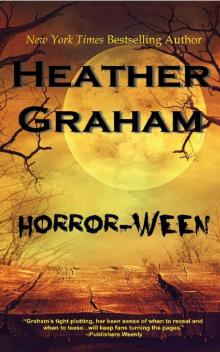 Horror-Ween (Krewe of Hunters)
Horror-Ween (Krewe of Hunters)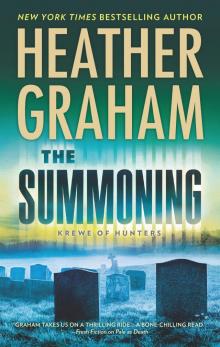 The Summoning
The Summoning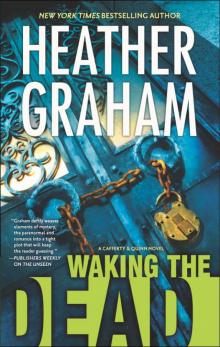 Waking the Dead
Waking the Dead Danger in Numbers
Danger in Numbers The Hidden
The Hidden Sweet Savage Eden
Sweet Savage Eden Tangled Threat ; Suspicious
Tangled Threat ; Suspicious Mother's Day, the Krewe, and a Really Big Dog
Mother's Day, the Krewe, and a Really Big Dog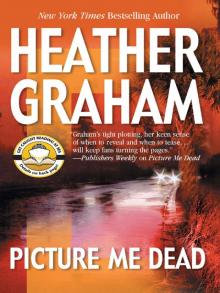 Picture Me Dead
Picture Me Dead The Killing Edge
The Killing Edge St. Patrick's Day
St. Patrick's Day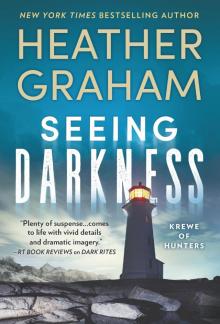 Seeing Darkness
Seeing Darkness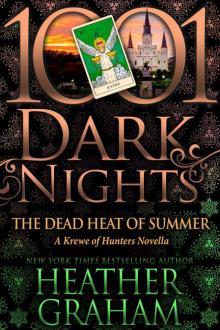 The Dead Heat of Summer: A Krewe of Hunters Novella
The Dead Heat of Summer: A Krewe of Hunters Novella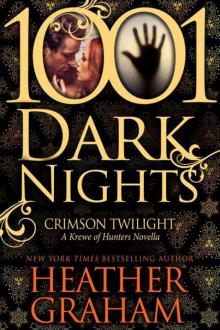 Crimson Twilight
Crimson Twilight Haunted Destiny
Haunted Destiny Devil's Mistress
Devil's Mistress Banshee
Banshee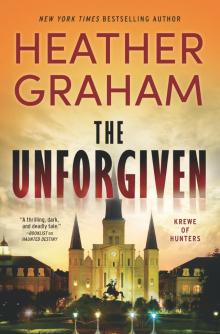 The Unforgiven
The Unforgiven The Final Deception
The Final Deception A Horribly Haunted Halloween
A Horribly Haunted Halloween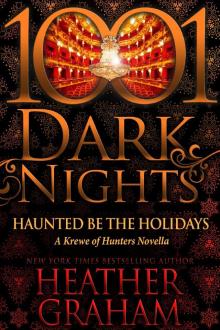 Haunted Be the Holidays
Haunted Be the Holidays Deadly Gift
Deadly Gift Easter, the Krewe and Another Large White Rabbit
Easter, the Krewe and Another Large White Rabbit Haunted
Haunted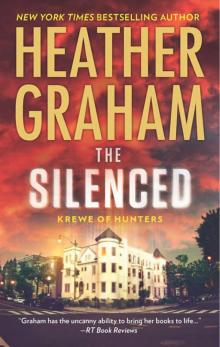 The Silenced
The Silenced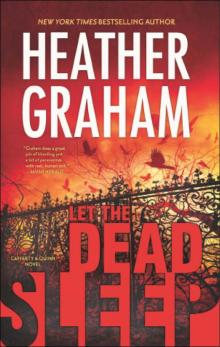 Let the Dead Sleep
Let the Dead Sleep Christmas, the Krewe, and Kenneth
Christmas, the Krewe, and Kenneth Big Easy Evil
Big Easy Evil Sinister Intentions & Confiscated Conception
Sinister Intentions & Confiscated Conception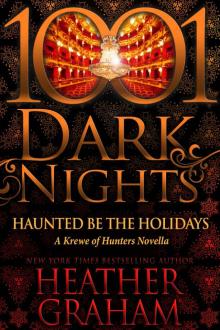 Haunted Be the Holidays: A Krewe of Hunters Novella
Haunted Be the Holidays: A Krewe of Hunters Novella Blood Red
Blood Red A Perilous Eden
A Perilous Eden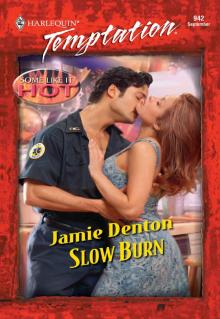 Slow Burn
Slow Burn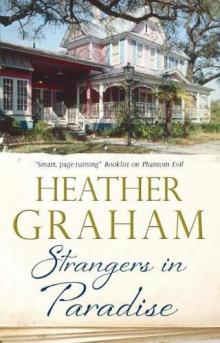 Strangers In Paradise
Strangers In Paradise Bitter Reckoning
Bitter Reckoning Krewe of Hunters, Volume 1: Phantom Evil ; Heart of Evil ; Sacred Evil ; The Evil Inside
Krewe of Hunters, Volume 1: Phantom Evil ; Heart of Evil ; Sacred Evil ; The Evil Inside Do You Fear What I Fear?
Do You Fear What I Fear? The Face in the Window
The Face in the Window Krewe of Hunters, Volume 3: The Night Is WatchingThe Night Is AliveThe Night Is Forever
Krewe of Hunters, Volume 3: The Night Is WatchingThe Night Is AliveThe Night Is Forever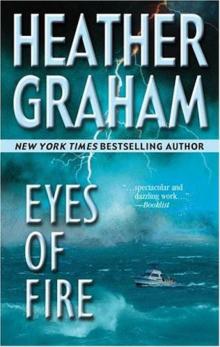 Eyes of Fire
Eyes of Fire Apache Summer sb-3
Apache Summer sb-3 Sensuous Angel
Sensuous Angel In the Dark
In the Dark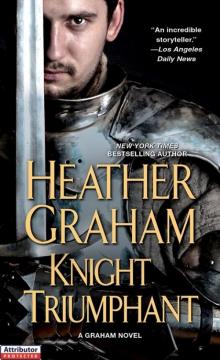 Knight Triumphant
Knight Triumphant Hours to Cherish
Hours to Cherish Tender Deception
Tender Deception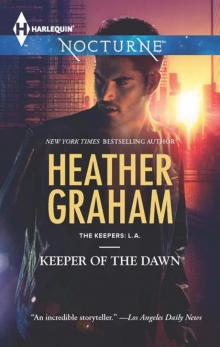 Keeper of the Dawn tkl-4
Keeper of the Dawn tkl-4 Apache Summer
Apache Summer Between Roc and a Hard Place
Between Roc and a Hard Place Echoes of Evil
Echoes of Evil The Game of Love
The Game of Love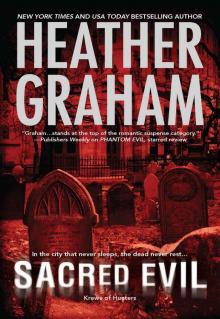 Sacred Evil (Krewe of Hunters)
Sacred Evil (Krewe of Hunters) Bougainvillea
Bougainvillea Tender Taming
Tender Taming Keeper of the Night (The Keepers: L.A.)
Keeper of the Night (The Keepers: L.A.) Lonesome Rider and Wilde Imaginings
Lonesome Rider and Wilde Imaginings Lucia in Love
Lucia in Love The Gatekeeper
The Gatekeeper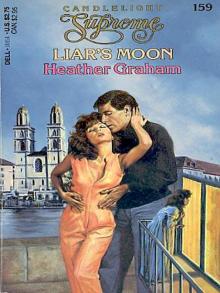 Liar's Moon
Liar's Moon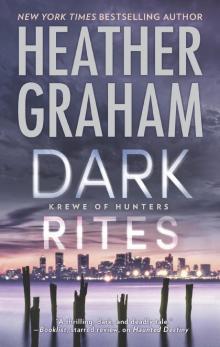 Dark Rites--A Paranormal Romance Novel
Dark Rites--A Paranormal Romance Novel A Season for Love
A Season for Love Krewe of Hunters, Volume 6: Haunted Destiny ; Deadly Fate ; Darkest Journey
Krewe of Hunters, Volume 6: Haunted Destiny ; Deadly Fate ; Darkest Journey Keeper of the Dawn (The Keepers: L.A.)
Keeper of the Dawn (The Keepers: L.A.)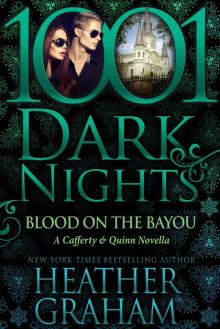 Blood on the Bayou: A Cafferty & Quinn Novella
Blood on the Bayou: A Cafferty & Quinn Novella Double Entendre
Double Entendre A Perfect Obsession--A Novel of Romantic Suspense
A Perfect Obsession--A Novel of Romantic Suspense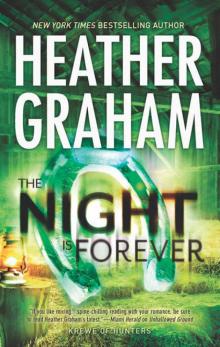 The Night Is Forever koh-11
The Night Is Forever koh-11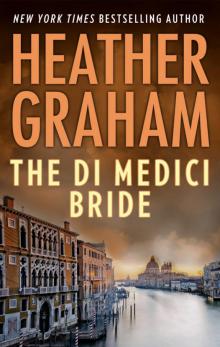 The Di Medici Bride
The Di Medici Bride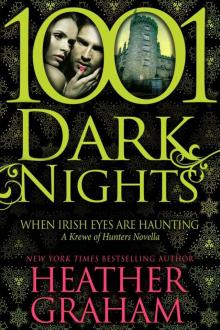 When Irish Eyes Are Haunting: A Krewe of Hunters Novella
When Irish Eyes Are Haunting: A Krewe of Hunters Novella The Keepers: Christmas in Salem: Do You Fear What I Fear?The Fright Before ChristmasUnholy NightStalking in a Winter Wonderland (Harlequin Nocturne)
The Keepers: Christmas in Salem: Do You Fear What I Fear?The Fright Before ChristmasUnholy NightStalking in a Winter Wonderland (Harlequin Nocturne) Never Fear
Never Fear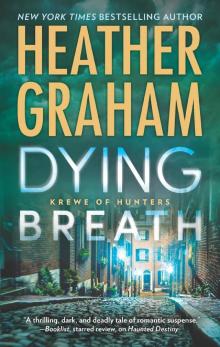 Dying Breath--A Heart-Stopping Novel of Paranormal Romantic Suspense
Dying Breath--A Heart-Stopping Novel of Paranormal Romantic Suspense If Looks Could Kill
If Looks Could Kill This Rough Magic
This Rough Magic Heather Graham's Christmas Treasures
Heather Graham's Christmas Treasures Hatfield and McCoy
Hatfield and McCoy The Trouble with Andrew
The Trouble with Andrew Never Fear - The Tarot: Do You Really Want To Know?
Never Fear - The Tarot: Do You Really Want To Know?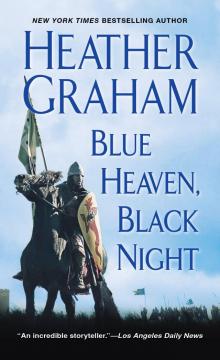 Blue Heaven, Black Night
Blue Heaven, Black Night Forbidden Fire
Forbidden Fire Come the Morning
Come the Morning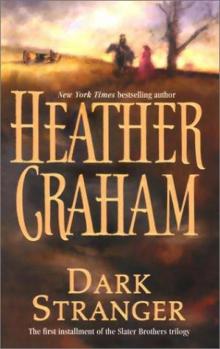 Dark Stranger sb-4
Dark Stranger sb-4 Lie Down in Roses
Lie Down in Roses Red Midnight
Red Midnight Krewe of Hunters Series, Volume 5
Krewe of Hunters Series, Volume 5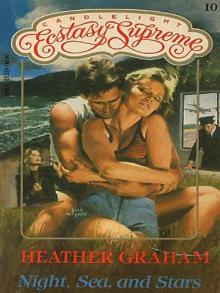 Night, Sea, And Stars
Night, Sea, And Stars Snowfire
Snowfire Quiet Walks the Tiger
Quiet Walks the Tiger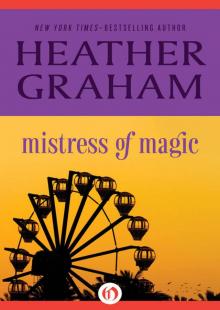 Mistress of Magic
Mistress of Magic For All of Her Life
For All of Her Life Runaway
Runaway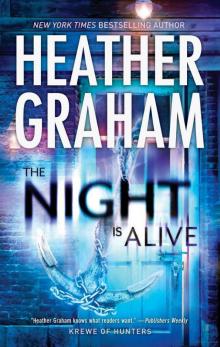 The Night Is Alive koh-10
The Night Is Alive koh-10 The Evil Inside (Krewe of Hunters)
The Evil Inside (Krewe of Hunters)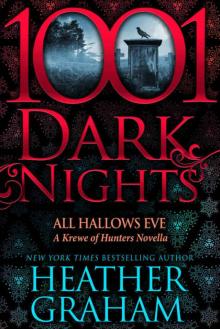 All Hallows Eve: A Krewe of Hunters Novella (1001 Dark Nights)
All Hallows Eve: A Krewe of Hunters Novella (1001 Dark Nights) Tomorrow the Glory
Tomorrow the Glory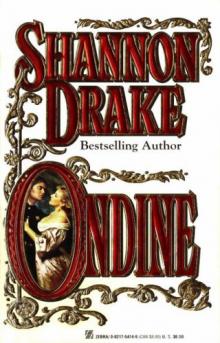 Ondine
Ondine Angel of Mercy & Standoff at Mustang Ridge
Angel of Mercy & Standoff at Mustang Ridge Bride of the Tiger
Bride of the Tiger When Next We Love
When Next We Love Heather Graham Krewe of Hunters Series, Volume 4
Heather Graham Krewe of Hunters Series, Volume 4 A Season of Miracles
A Season of Miracles Realm of Shadows (Vampire Alliance)
Realm of Shadows (Vampire Alliance) When We Touch
When We Touch Serena's Magic
Serena's Magic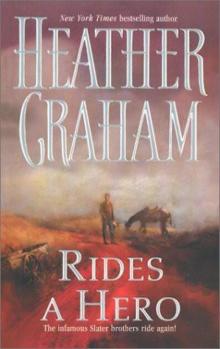 Rides a Hero sb-2
Rides a Hero sb-2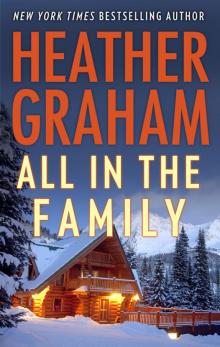 All in the Family
All in the Family Handful of Dreams
Handful of Dreams A Stranger in the Hamptons
A Stranger in the Hamptons Krewe of Hunters, Volume 2: The Unseen ; The Unholy ; The Unspoken ; The Uninvited
Krewe of Hunters, Volume 2: The Unseen ; The Unholy ; The Unspoken ; The Uninvited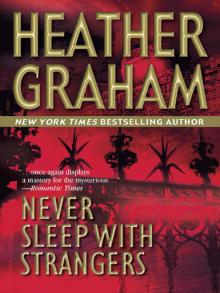 Never Sleep With Strangers
Never Sleep With Strangers Eden's Spell
Eden's Spell A Magical Christmas
A Magical Christmas Forever My Love
Forever My Love King of the Castle
King of the Castle Night Moves (60th Anniversary)
Night Moves (60th Anniversary) The Island
The Island Borrowed Angel
Borrowed Angel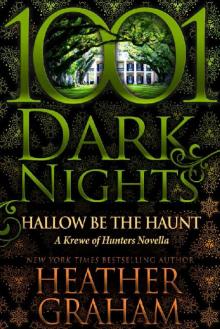 Hallow Be the Haunt: A Krewe of Hunters Novella
Hallow Be the Haunt: A Krewe of Hunters Novella Why I Love New Orleans
Why I Love New Orleans The Last Cavalier
The Last Cavalier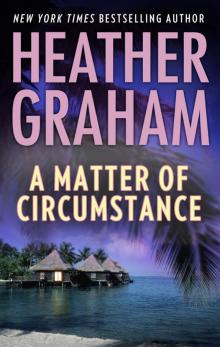 A Matter of Circumstance
A Matter of Circumstance Heather Graham's Haunted Treasures
Heather Graham's Haunted Treasures Tempestuous Eden
Tempestuous Eden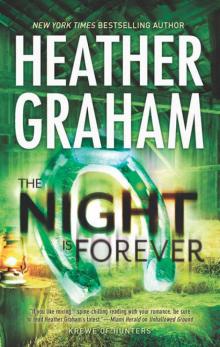 Krewe 11 - The Night Is Forever
Krewe 11 - The Night Is Forever